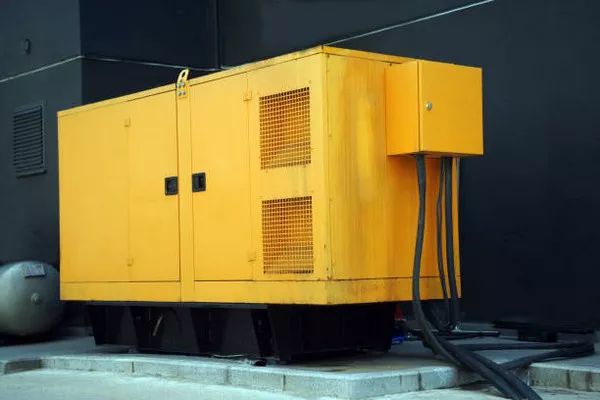In times of power outages, natural disasters, or when venturing off-grid, a generator can be a lifesaver. However, to effectively and safely use a generator, selecting the appropriate power cord is essential. This guide aims to provide a detailed overview of what you need to consider when choosing a cord for your generator, ensuring you make an informed decision.
Understanding Generator Power Output
Before delving into the specifics of cords, it’s crucial to understand your generator’s power output. Generators are rated in watts, which indicates how much power they can produce. Small portable generators typically range from 1,000 to 4,000 watts, while larger standby generators can produce 5,000 to 15,000 watts or more.
The generator’s power output will dictate the type of cord you need. Ensure you know your generator’s wattage, as using an undersized cord can lead to overheating and potential fire hazards.
Types of Generator Cords
Generator cords come in various types and configurations. The two primary types are:
- Standard Extension Cords
- Generator Power Cords (Specialty Cords)
Standard Extension Cords
These are typical extension cords you might use for everyday household appliances. However, not all extension cords are suitable for generator use. When choosing a standard extension cord for a generator, consider the following:
Gauge: The wire gauge of the extension cord determines its capacity to handle current. Lower gauge numbers indicate thicker wires, which can carry more power. For generator use, it’s recommended to use a cord with a gauge of at least 10 AWG (American Wire Gauge) for most small to medium generators. For larger generators, you may need a heavier gauge like 8 AWG or even 6 AWG.
Length: The longer the cord, the more resistance it has, which can reduce the amount of power that reaches your appliances. Try to use the shortest length possible to meet your needs. For distances up to 50 feet, a 10 AWG cord is typically sufficient. For longer distances, you may need a heavier gauge.
Insulation: Ensure the cord is rated for outdoor use and has proper insulation to withstand the elements and rough handling.
Generator Power Cords
These cords are specifically designed for connecting generators to multiple appliances or directly to your home’s electrical system. They come in several configurations:
L14-30 and L14-50 Cords: These are common types of twist-lock cords used for portable generators. The L14-30 cord is typically used for generators up to 7,500 watts, while the L14-50 cord is used for larger generators up to 12,500 watts.
Transfer Switch Cords: These cords are used to connect your generator directly to a transfer switch, which then distributes power to your home’s electrical system. Transfer switches are a safer and more convenient way to use a generator during power outages.
Matching Plugs and Receptacles
Generators and cords come with various plug and receptacle types. It’s essential to ensure compatibility between your generator’s outlet and the cord’s plug. Common plug and receptacle types include:
- NEMA 5-15: Standard household plug for small appliances.
- NEMA 5-20: Standard household plug but with a higher capacity.
- NEMA L14-30: Twist-lock plug for higher capacity portable generators.
- NEMA L14-50: Twist-lock plug for very high capacity portable generators.
- NEMA TT-30: Typically used for RVs and some portable generators.
Check your generator’s manual to identify the correct plug type for your needs.
Safety Considerations
When using a generator and its corresponding cords, safety should always be a top priority. Here are some crucial safety tips:
Avoid Overloading: Ensure the total wattage of all connected appliances does not exceed the generator’s rated capacity.
Keep Cords Dry: Avoid using cords in wet conditions, and keep them elevated off the ground to prevent water from entering the connectors.
Proper Storage: Store cords properly to avoid damage. Inspect cords regularly for wear and tear, and replace any damaged cords immediately.
Use Transfer Switches: If connecting a generator to your home’s electrical system, always use a transfer switch installed by a qualified electrician. This prevents backfeeding, which can be dangerous for utility workers and your household.
Special Considerations for Home Backup Generators
For homeowners with standby generators, the process of selecting cords can be slightly different. Standby generators are usually permanently installed and connected to a home’s electrical system via a transfer switch. In this case, the primary consideration is ensuring the transfer switch and associated wiring are appropriately rated for the generator’s output.
However, for portable generators used as backup power sources, you’ll need to choose the right cord to connect the generator to the transfer switch. Typically, a heavy-duty power cord with a twist-lock plug (such as L14-30 or L14-50) is required.
Practical Examples
Let’s consider a few practical examples to illustrate the selection process:
Small Portable Generator (2,000 watts): Recommended Cord: 12 AWG extension cord, 25-50 feet in length, outdoor-rated.
Medium Portable Generator (5,000 watts): Recommended Cord: L14-30 generator power cord, 10 AWG, 25-50 feet in length.
Large Portable Generator (9,000 watts): Recommended Cord: L14-50 generator power cord, 8 AWG, 25-50 feet in length.
See Also HOW DOES AN AC GENERATOR WORK
Conclusion
Choosing the right cord for your generator is not just about convenience but also safety and efficiency. By understanding your generator’s power output, selecting the appropriate gauge, length, and type of cord, and ensuring compatibility with your generator’s plugs and receptacles, you can ensure a safe and effective power supply.
Remember to prioritize safety by avoiding overloading, keeping cords dry, and using transfer switches when necessary. Regular inspection and proper storage of cords will also prolong their lifespan and reliability.
Whether you’re preparing for an emergency, planning an outdoor adventure, or simply seeking reliable backup power, the right generator cord will make all the difference.

